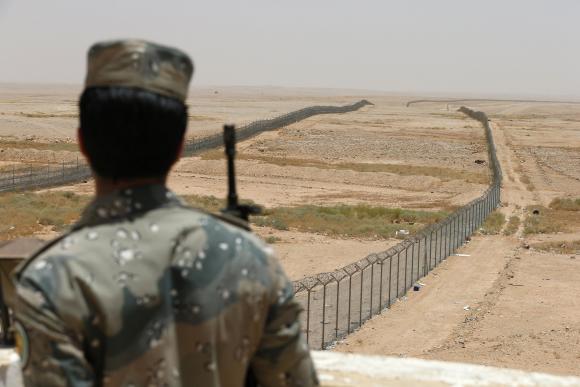If things continue in the same vein that we are witnessing today, Iraq as we know it will not exist for long. There are strong indications that this is not being said to intimidate people, exaggerate facts or reiterate old conspiracy theories. The reality on the ground is deepening the division between Shi’ites, Sunnis and Kurds, and the political fragmentation is increasing the incompetence and confusion in Iraq. Meanwhile, the ongoing violence continues to fuel tensions and the culture of resentment and revenge. The entry of the Islamic State of Iraq and Syria (ISIS) onto the scene has further complicated things and provided some with an additional pretext to push ideas of partition to the forefront.
Sadly, talk of the partition of Iraq is nothing new. No steps or policies have been taken in Iraq to immunize the country against such a scenario. Tensions continued to boil under the surface thanks to deviant political practices and the intervention of regional and international forces in Iraq. Not to mention political disputes among Arabs that created an unprecedented state of impotence and frustration in the region.
Foreign plots do exist, and no rational person can deny their existence. But the responsibility has to always fall on affected countries that need to immunize themselves and their people against such risks and interventions by consolidating their national unity, not just through words but by the introduction of policies that place the rights of citizens and principles of citizenship above the political whims and desires of politicians.
It has been known for more than 40 years now that there are figures promoting the partition of Iraq. Many have written about the former US Secretary of State Henry Kissinger’s project—dating back to the early 1970s—of partitioning Iraq and other Arab states in order to create a new map of the region along sectarian and ethnic lines. There was also, during the 1980s and 1990s, talk about US and Israeli projects to partition Iraq into three regions, for Sunnis, Shi’ites and Kurds. This was followed in the 2000s, particularly during the period before and after the 2003 US invasion of Iraq, by such talk of partition being repeated publicly by Right-Wing and pro-Israel circles in the US.
One of the most controversial projects was the resolution adopted by the US Senate in September 2007 suggesting a division of Iraq into three federations as a solution to the crisis that particularly worsened in the wake of the US invasion and led to a sectarian civil war. What is remarkable is that the draft resolution was adopted and submitted to vote by Joe Biden, who was the then-head of the Senate Foreign Relations Committee. More recently, after becoming the US Vice President, Biden proposed his “three-state solution,” again as a solution to the Iraqi crisis, particularly following the emergence of ISIS.
Regardless of conspiracy theories, the old talk of partition should have boosted the determination of Iraqis, before anyone else, to strengthen their domestic situation by achieving true national unity and creating an identity inclusive to all segments of society. Real steps should have been taken to recognize the rights of all national components, allow them to participate in power, and achieve fair distribution of resources in order to entrench principles of citizenship and the spirit of belonging.
The problem is that all the regimes that came to rule Iraq are now considered in one way or another responsible for the situation Iraq finds itself in. This includes the regime of late Iraqi President Saddam Hussein. Some argue that had Saddam remained in power, Iraq would not be teetering on the brink of fragmentation now. Those who hold this opinion ignore the fact that much of the repression he practiced against all Iraqis without exception, but particularly and more violently against Kurds and then Shi’ites after the 1991 uprising, escalated the situation and contributed to the accumulation of factors leading to national fragmentation rather than unity. On the other hand, the silence of Arabs towards the massacres and violations that took place fueled feelings of animosity.
Former Iraqi Prime Minister Nuri Al-Maliki also missed a great chance to build a new Iraq that respects diversity and the rights of all national components by transcending the narrow sectarian considerations and old vendettas. Maliki instead engrossed himself in power struggles and entered into conflict with the Kurds and ignored the grievances and complaints of Sunni Arabs. The result of these practices was not only that it weakened Iraq and plunged it into internal conflicts that have exhausted all of its powers, but it also opened the doors to extremists from all over the world and pushed the country to the verge of disintegration and partition.
Iraq needs a miracle to make all concerned sides, inside and outside, realize that partition does not necessarily mean stability and the end of infighting, particularly in the current circumstances. But since going back to past conditions, with all its defects, could be difficult if not impossible, Iraqis are in need of an inclusive national conference to openly and transparently discuss their crisis and agree on a new political formula and constitution that not only reduces sectarianism but also secures everyone’s rights on the grounds of citizenship and equality. Otherwise, Iraqis should steel themselves for partition with all the internal and regional problems and tensions that implies. The solution to the crisis this time lies in the hands of the Kurds, who represent the balancing force in this complex situation.
